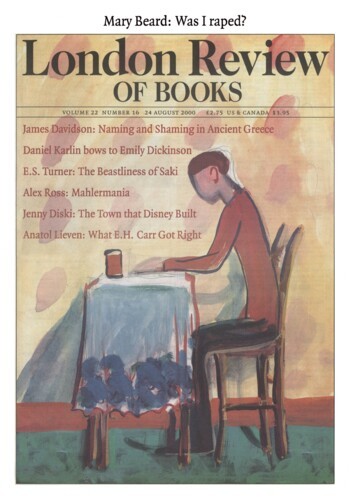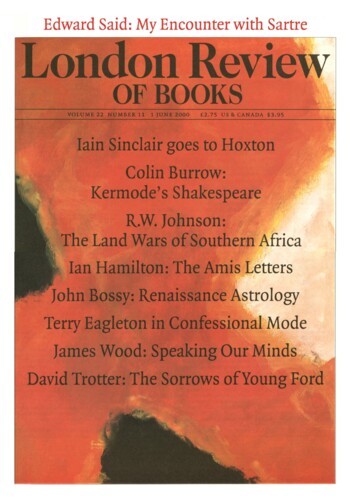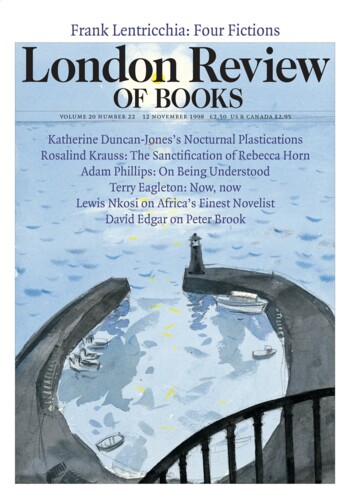An UnAmerican in New York: The Harlem Renaissance
Lewis Nkosi, 24 August 2000
Between the end of World War One and the Great Depression there occurred in Harlem such a flowering of music, dance, theatre and painting as to change white American perceptions of African American artistic expression. In a little over a decade, more books by black Americans appeared in print than had been published in the entire history of black American writing. In December 1923, Opportunity, the mouthpiece of the National Urban League, declared in its editorial: ‘There are new voices speaking from the depths and fullness of the Negro’s life, and they are harbingers of the new period into which Negroes appear to be emerging.’ Opportunity’s editor was Charles Johnson, a key figure in the New Negro movement, who thirty years later recalled the Harlem Renaissance as ‘that sudden and altogether phenomenal outburst of emotional expression, unmatched by any comparable period in American or Negro American history.’‘



